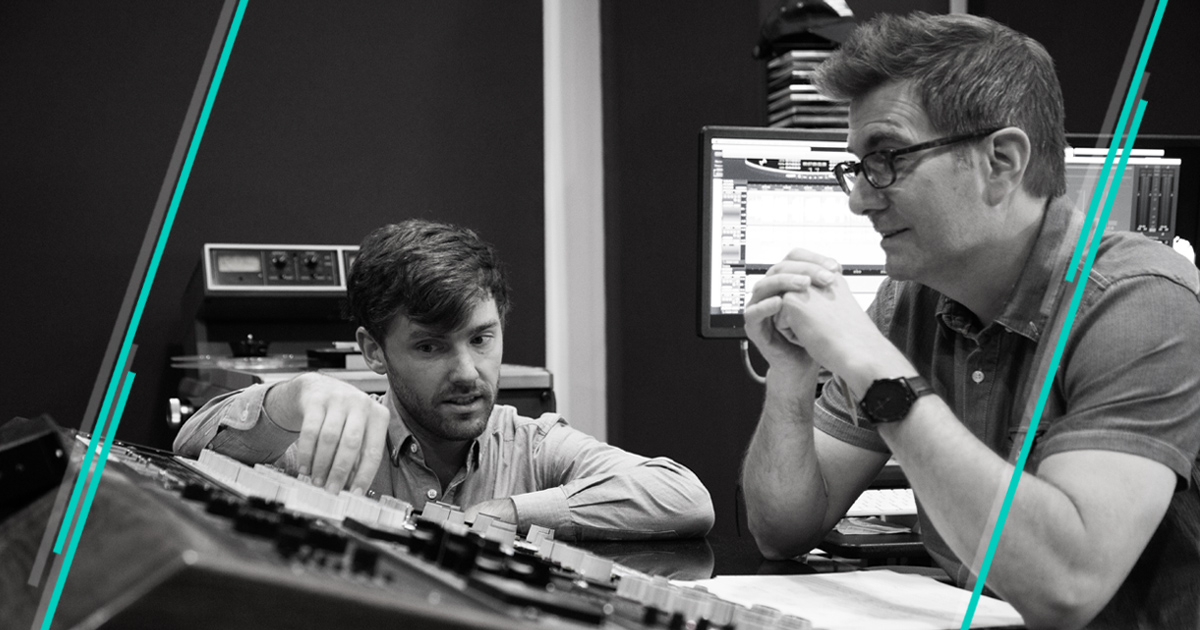 Owing to a pervasive misconception of what music industry success is, and how it’s achieved, several prominent myths have emerged which many musicians take to heart that simply aren’t true. In this piece Krizel Minnema works to debunk four of them.
Owing to a pervasive misconception of what music industry success is, and how it’s achieved, several prominent myths have emerged which many musicians take to heart that simply aren’t true. In this piece Krizel Minnema works to debunk four of them.
_________________________
Guest post by Krizel Minnema of Soundfly‘s Flypaper
Glamour and luxury has shaped the way a lot of musicians perceive the music industry. Even the way few musicians are discovered seem like glorious happenstance that seem sort of in reach. This turns into two things for aspiring musicians. First, success looks like a millionaire life with tons of fame. Second, to achieve this success, you need to keep hustling until you stumble upon the right record label exec to get you signed.
As a result, I’ve found that there are four big myths that musicians end up believing about succeeding in the music industry. And unfortunately, a lot of this blind hope only sets them up for failure.
MYTH 1: If you perform enough gigs, you might just be discovered by the right record label executive.
Sure, artists like Rihanna and Taylor Swift were discovered. But tons of musicians are discovered and only a few of them make it. Regardless, musicians will gig around as many places as possible. They might even do some covers and originals on their YouTube channel hoping to be the next viral hit.
The problem with this is that it’s a “spray and pray” or “scratch and maybe win” process. It’s aimless, tactless, and it hardly ever works. I call these musicians the lottery musicians.
Doing gigs and sharing music needs to be strategic and meaningful. For example, The Civil Wars started in small areas and very specific areas. Their other strategy was to offer a free live recorded EP in exchange for emails and zip codes. They got over 500,000 new subscribers from this! Not only did they mine an excellent way to connect directly with fans, but they knew where their fans were to build tours around them specifically. This is deliberate and strategic — not random.
The kicker? They became a Grammy-award-winning success, all without a major record label. In fact, record labels don’t even look for talented musicians anymore. They look for artists that have a following. For example, Bhad Bhabie — she has absolutely no rap experience. She had a few one-liners on a Dr. Phil show, and then she became an internet sensation. Not long after, she was offered a major record label deal from Atlantic.
MYTH 2: The only way you can be successful is with a major record label.
The Civil Wars, Chance the Rapper, Dodie, KING, Ingrid Michaelson, and Kina Grannis, among many others, are all independent artists who don’t have a major record label backing them. Yet, they’re making six or seven figures off their music. Aside from their salaries, they’re able to create music full-time while paying the bills. For most people, this is success.
Nowadays, “getting discovered” is like winning the lottery. Much worse, even if you are signed, record labels aren’t obligated to get an album out of you. In fact, only 0.2% of those signed manage to dodge the bullet of being dropped by their label. In other words, that means 99.8% fail. Even more, 99% of the acts signed never even get to release an album (Avalon, 2011).
You might think to yourself, “But I’m different. I’ve got real talent, and they just gotta find me.” I’m sure this might be true for you. But you can’t bank on happenstance to get a deal. If you do, your likely failure rate just increases. The reality is, successful musicians are strategic and smart about how they promote and grow their fanbase.
+ Learn more on Soundfly: Understand how streaming and sales royalties really work and how to get the money you deserve in our free course with Ari Herstand, How to Get All the Royalties You Never Knew Existed.
MYTH 3: In order to be successful, musicians need to just focus on their craft, even if they’re starving.
This isn’t just a musician problem; it’s an artist problem. The problematic mentality many artists have is, “If you love something, wouldn’t you just do it for free?” — and it comes from the idea that being poor means having more passion and more authenticity. This couldn’t be more wrong.
Deep down, it’s an excuse not to think strategically or try harder. As a result, they convince themselves that real opportunity will be handed to them. “Real art is found.” Opportunity is created, not hand-delivered. The music industry is changing, and it demands a change in mindset — which leads me to the next myth.
MYTH 4: The music industry is dead, so why even try?
Ever since P2P file sharing back in the early 2000s and, now, the growing streaming industry, CD sales have plummeted. Demand, however, has not.
People are listening to music more than ever before. In fact, countless academic research has shown that streaming increases the interest of music consumption. In other words, streaming increases a fan’s listening palettes and increases their interest to buy full CDs or physical albums.
Even music that was made centuries ago is having a comeback in this changing music industry — all thanks to streaming. Back in 2016, Mozart (yes, Wolfgang Amadeus Mozart) had one of the highest album sales of the year.
The way in which fans consume music today is completely different from the early 2000s. How much they’re consuming is also changing. This also means artists need to be creative with the ways they reach fans and how they sell to them.
Beyoncé created a visual album. Chance the Rapper gave all his music away and just made money off his tours. Kina Grannis ran a Patreon campaign to create her own label with her fans. Radiohead released their album in a “pay what you want” model, and made more that way than any other major record label release. Thanks to the changing digital landscape around music, there are even more opportunities to connect with fans and succeed in the music industry.
Crushing those myths, and the next steps for you
As a musician, you can build a tangible and strategic plan to succeed in the music industry. It all starts with a shift from a “lottery musician” mentality to an “opportunist musician” mentality.
Here are three steps for you to jumpstart into that mind shift:
- Have smart, digestible goals. Being strategic means being reasonable with your goals. Make simple, tangible goals that make it easier to get to your biggest goal. If your goal is to have 100,000 fans, start with the first 10, then 100, then 1,000, then so on.
- Think of different streams of revenue. Don’t just focus on getting fans. Think of ways to monetize your craft. This includes streaming sales, single/album sales, merchandise sales, sync licenses, collaborations, lending your voice in projects, live digital shows (yes, that’s a thing!), crowdfunding, and more.
- Keep learning. Keep investing in your education. Not just your craft. This includes the music business, learning how to network with the right people, understanding smart promotional strategies to get more fans by reading books or taking online courses, etc. Never stop learning and apply what you learn.
Our community of Soundfly Mentors can help you set the right goals, pave the right path toward success, and stick to schedules and routines that you develop together. Headliners Club is like having a personal trainer for your music, with a series of musical workouts, a whole lot of feedback and support, and the chance to accomplish something you’ll be proud of.
Talk to a Mentor today to get some quick advice based on where you are in your musical journey and what options might be right for you.
Krizel Minnema is a digital marketing strategist and entrepreneur with an MBA in Music Business from Berklee College of Music. She runs the Music Road blog.






























